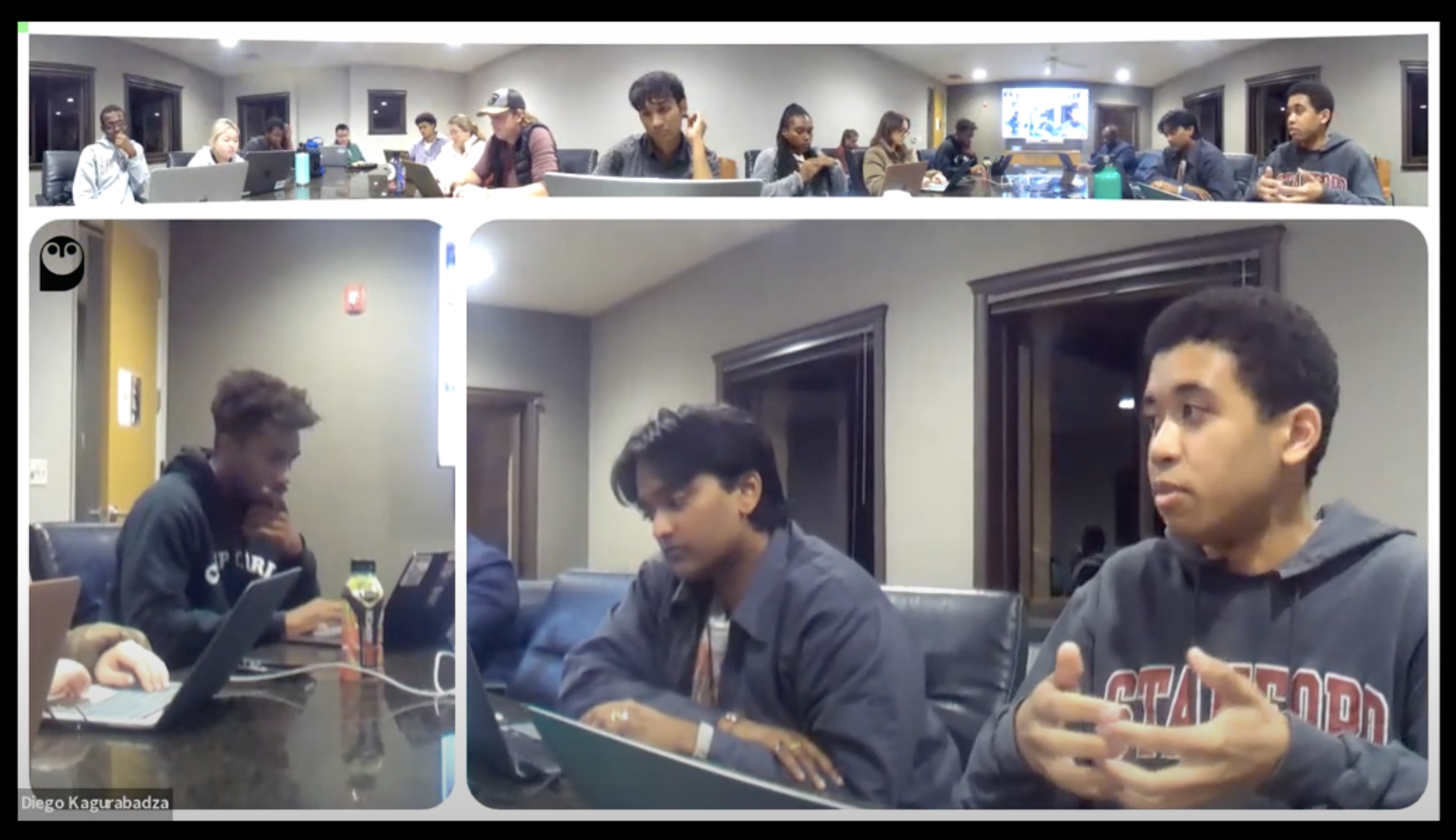The Undergraduate Senate (UGS) unanimously passed a bill confirming new members to the Nominations Commission (NomCom), the student commission responsible for nominating students to various University committees, at its Wednesday meeting.
The senate’s vote, which came in the wake of a previous unanimous confirmation vote by the Graduate Student Council, confirmed a slate of five undergraduate students and one graduate student to NomCom.
Co-chair Diego Kagurabadza ‘25 emphasized the timeliness of the senate’s vote. He said several committees, including the Academic Integrity Working Group, reached out to senators and expressed an urgent need for student representatives.
Senators also unanimously passed a bill that would repeal the requirement that the Leland Stanford Junior University Marching Band (LSJUMB) return to VSO status in order to receive ASSU funding. Instead, the bill conditions future funding on recommendations provided by the Financial Manager of the ASSU.
The UGS had previously passed a March 2023 resolution that authorized an audit into the finances of the LSJUMB. The resolution was in response to allegations from former band members that funding was not being used for student benefit. According to the bill, the audit did not find any evidence of misuse of funds, although the ASSU Financial Manager did highlight “several areas for improvement in the handling of funds.”
Senators also made plans to vote on a bill that would confirm three nominees to the Constitutional Council. Nominees were interviewed by the Chair of the Constitutional Council rather than by ASSU executives, said Sophia Danielpour ‘24, the ASSU president. However, the ASSU executives did meet with the Chair of the Constitutional Council to review their notes on each nominee.
“We judged people on the basis of how well they understood the ASSU constitution, what we thought their legal aptitude was and how much we believed they were able to take on the duties of the role,” Danielpour said.
Kagurabadza said that according to the ASSU Constitution, the selection of members to the Constitutional Council is a responsibility which belongs to the ASSU executive branch. He expressed concern that the ASSU executives’ decision to not personally interview nominees runs counter to the “separation of powers” between each branch of the ASSU.
“Having the Chair of the Constitutional Council essentially choose their own co-workers is a little difficult to swallow,” Kagurabadza said.
Danielpour defended her involvement in the nomination process, stating that ASSU executives “drew on past precedent” in their approach to nominating members of the Constitutional Council and reviewed every application that was submitted.
The UGS will look to invite the nominees under discussion to its next meeting, according to Kagurabadza.
